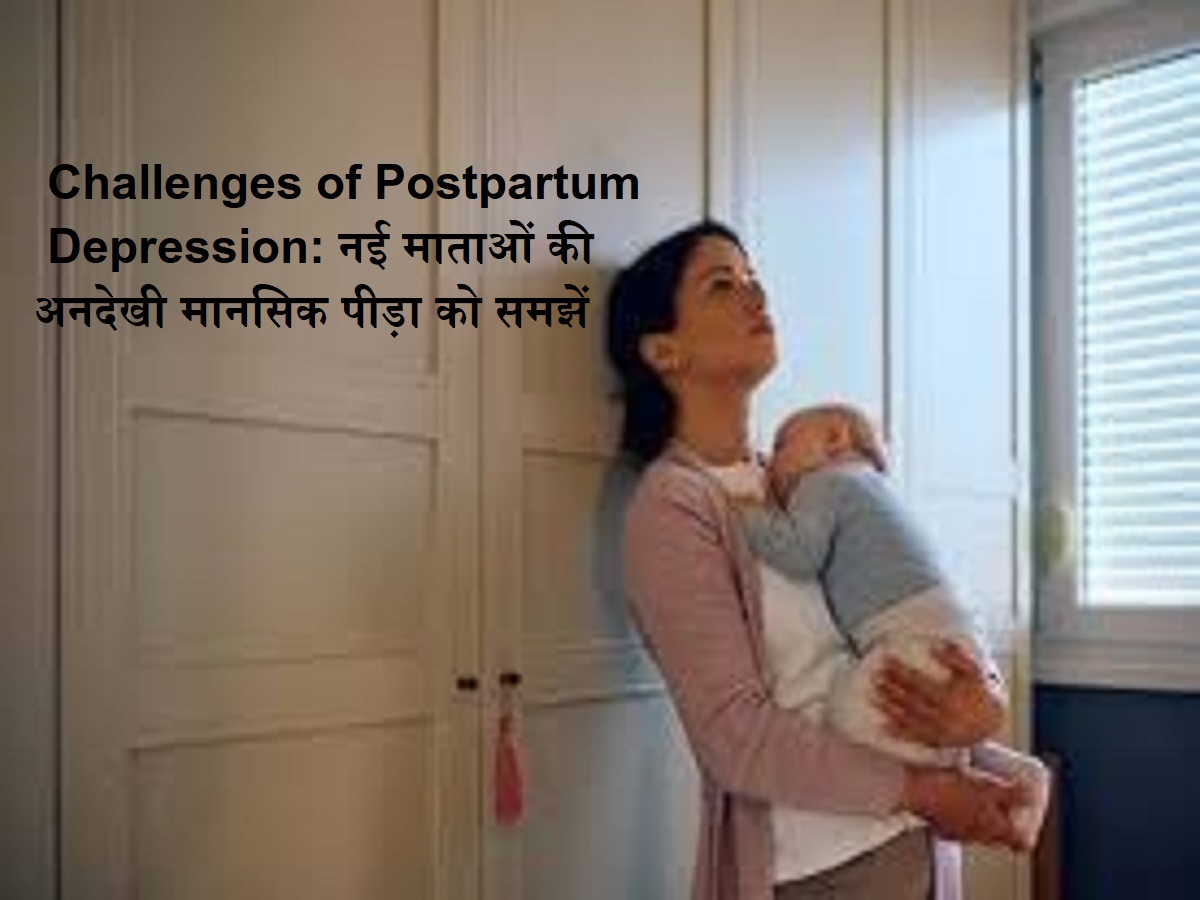News India Live, Digital Desk: Challenges of postpartum depression: Maternity is often marked as the most pleasant experience in one’s life, but with enthusiasm and excessive pleasure, it also brings large challenges to new mothers. These days, postpartum depression (PPD) has become quite common, yet it is often misunderstood or ignored. It is necessary to immediately address emotional, psychological and overall health conflicts, as it is a serious condition that requires timely attention and intervention. Dr. Priya Gupta, maternity and gynecology, senior advisor, Cocoon Hospital, Jaipur shared their views about supporting patients.
What is postpartum depression?
Postpartum depression is a mood related disorder that occurs after giving birth to women. Sometimes this depression is considered as “baby blues”, although it is different from anxiety, sadness or fatigue caused by the busy schedule of new mothers. PPD is more intense because it disrupts the mother’s ability to take care of her child or even herself. It is necessary to address this issue because if it is left uncontrolled, it can negatively affect both mother and child.
This mood disorder is very common nowadays. The Disease Control and Prevention Center (CDC) has reported that 1 out of 8 women experience such depression symptoms after delivery. Warning signs should not be ignored, and some symbolic symptoms experienced by new mothers include anxiety, frequent sadness, lack of interest, excessive fatigue, difficulty in having relationships with a child, constant feeling of despair, guilt, trouble, troubles, and excessive thoughts to harm the child. Such signs usually begin to appear within the first week after delivery but they can also develop within the first year of childbirth.
What are the causes of PPD?
Maternity brings many challenges in physical, emotional, social and mentally. Many reasons are responsible for postpartum depression. Many new mothers face emotional turmoil due to sudden fall in hormones (estrogen and progesterone) after delivery. Due to this, they also experience emotional instability and mood swing. Many other factors such as sleep loss, maternal health, career-based uncertainty, domestic needs and newborn care responsibilities spoil the situation and increase the emotional crisis.
Women with family history of depression or anxiety have a higher risk of developing PPD. Also, lack of support from family or partner is responsible for depression after birth in women. Complex pregnancies or delivery can also cause emotional crisis after the child’s birth. Other factors such as unwanted pregnancy, unstable financial conditions, trauma or previous experiences of misconduct may also increase sensitivity to PPD. It is necessary to understand that PPD develops in new mothers, whether their age, caste, socio -economic background or maternity history.
Dissect
Even today, many women avoid talking openly about their condition due to centuries old stigma associated with maternal mental health. The society expects to be happy with the new mother, which makes it difficult to accept the underlying mental crisis due to sadness, anxiety or dissatisfaction. The dominance of such stigma prevents new mothers from seeking the necessary help from experts. They fail to identify that their symptoms can be easily treated through timely diagnosis.
During this period, undoubtedly, awareness about PPD has increased. However, due to lack of understanding and sympathy from family, partner or even friends, many new mothers remain unheard. To promote the emotional good of mothers, it is necessary to listen to them by sharing their burden, validing their experiences and receiving medical help and feeling them.
Treatment of PPD is possible. Its diagnosis usually involves clinical evaluation, where a specialist understands the symptoms and detects the patient’s mental health history. Screening tools such as Edinburgh Postnetal Depression Scale (EPDS) are also widely used to identify emotional crisis in new mothers. During postpartum investigation, healthcare providers should conduct regular checks for PPD. This will provide new mothers a safe and decision-free environment.
How is PPD treated?
Depending on the intensity of depression, many treatment options are available. Cognitive behavior therapy (CBT) and regular treatments including internal therapy, mothers can reduce their symptoms. An expert may prescribe anti -seded drugs depending on the severity of the case. It is advisable to take medicines under the guidance of the healthcare provider as new mothers usually breastfeed. These days, help groups are helping new mothers get out of the difficult times of their lives and reminding them that they are not alone. Sometimes, simple amendments to worldly life can also bring positive changes. Lifestyle adjustments such as giving priority to comfort, proper nutrients, physical exercise and self-care are promoted recovery.
It is possible to recover from PPD by correct assistance and timely treatment. There is a need to remove false stories and stigma related to maternal health. It is necessary to educate society and develop a culture of compassion, sympathy and care towards new mothers.
Korean Celebrities: 2025 top 8 high -8 high -paid korean stars, the actor’s fee at number 2 will surprise the fees of the actor
